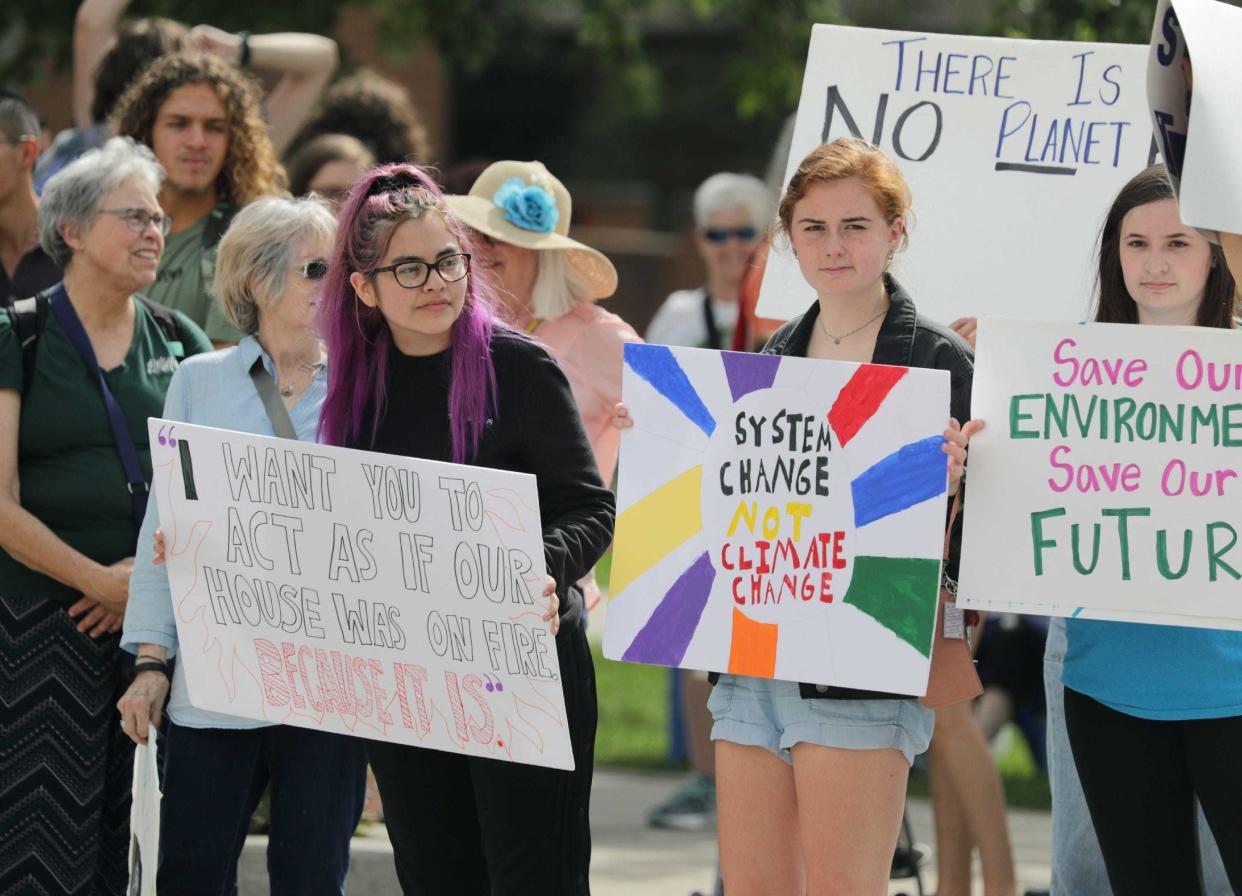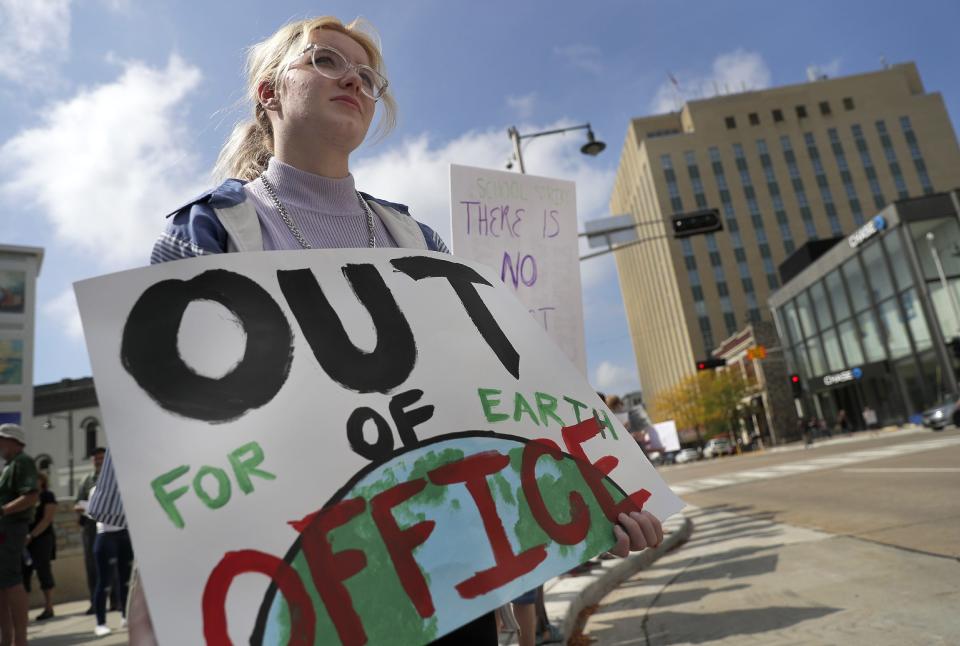Appleton task force recommends hiring climate specialist, forming Climate Change Commission

APPLETON - A city task force recommended Appleton hire a climate resiliency specialist to facilitate education and community outreach about climate change, mitigation and adaptation.
In addition, the panel recommended Appleton establish a Climate Change Commission to advise the mayor and Common Council on issues related to climate change.
The calls to action are contained in a 68-page Climate Action Plan that was presented Wednesday to city officials and the public.
Appleton resident Ronna Swift encouraged Mayor Jake Woodford to add the climate resiliency specialist to the city's budget.
"We need to have a person coordinating all this because we need to be working regionally, nationally and internationally," Swift said. "Time is running out. Our species is on its way out. We need to be able to communicate with other people that are doing this."
Woodford said city staff was reviewing the need for a climate resiliency specialist. He noted much has been accomplished without such a position.
"We have a team of people at the city of Appleton who are doing this work every single day," he said.
Woodford said staff also was reviewing the makeup of climate change commissions from other cities and that a recommendation would be brought forward for council consideration.
Appleton's Task Force on Resiliency, Climate Mitigation and Adaptation was created in 2019 to develop ways to reduce the city’s greenhouse gas emissions and use of nonrenewable resources and to increase its resiliency to the effects of climate change.
Appleton has a goal of achieving net-zero greenhouse gas emissions by 2050.

The Climate Action Plan is the culmination of two years of work by the task force. The plan contains nearly 50 recommendations, including initiatives for businesses and residents.
"Together, we can and must take action to reduce our impact on the environment and to prepare for a future shaped by the effects of climate change we are already facing," Woodford wrote in the plan. "The city of Appleton remains committed to leading in this important work."
RELATED: ‘The water always wins’: Volatile Lake Michigan inflicts heavy toll
RELATED: Students leave school to join Appleton climate strike
The plan recognizes that it's not possible to implement all of the recommendations at once. A prioritization process was developed to evaluate which projects should be undertaken first.
"While many of the proposed recommendations and actions cost money, overall reduction of energy use and switching to renewable forms of energy will have long-term economic benefits," the plan says.
The task force determined the climate resiliency specialist would promote resiliency practices in families, businesses and farms in Appleton and the surrounding areas; coordinate with other communities to procure large-scale renewable energy through utility companies or other sources; and identify potential revenue sources, such as state funding and grants.
Green Bay is among the cities that employ a resiliency coordinator.
The Climate Change Commission would carry on the work of the task force and serve in an advisory role. Its members would be appointed by the mayor and confirmed by the council.
Green Bay created a sustainability committee in 2018 to advise the mayor and council on environmental matters. Neenah has had a sustainability committee since 2007.
Other recommendations developed by the task force include:
Create a greenhouse gas inventory: The calculation of annual greenhouse gas emissions for Appleton, including all business, industry, households, transportation and other sources of emissions and sequestration in the community, would provide a baseline from which to improve upon.
Develop and execute an education plan: The effort would engage the community to learn about the causes, threats and solutions to climate change.
Embrace green buildings and practices: The city should implement "green infrastructure at every opportunity in buildings and hardscape to reduce energy consumption, greenhouse gas emissions, waste, natural resource depletion, stormwater runoff and deleterious public health impacts," the plan says.
Encourage alternative transportation: The city should update infrastructure to support active transportation such as biking, walking and wheelchair use for commuting and general travel to reduce automobile use and improve health. The city also could create incentives for driving hybrid and electric vehicles, such as free city parking for a year.
Reduce energy consumption: The city could convert all indoor and outdoor lighting to LED, and it could install smart streetlights that dim when no vehicle or pedestrian activity is detected.
Transition to renewable energy: A resolution to commit to 100% renewable energy by 2040 would give direction to all city departments to contribute to this goal, the plan says.
Protect the ecosystem: Appleton should expand the size and improve the quality of its urban forests and prairie landscapes.
Contact Duke Behnke at 920-993-7176 or dbehnke@gannett.com. Follow him on Twitter at @DukeBehnke.

SUPPORT LOCAL JOURNALISM: Our subscribers make this coverage possible. Click to see The Post-Crescent's special offers at postcrescent.com/subscribe and download our app on the App Store or Google Play.
This article originally appeared on Appleton Post-Crescent: Appleton task force recommends hiring climate resiliency specialist

